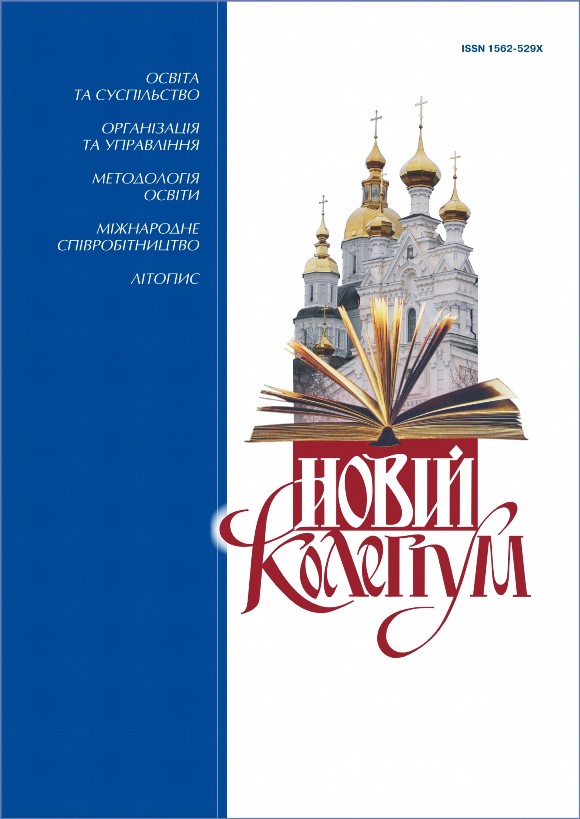Upgrading of educational programs: methodical aspects of the modern approach to the formulation of learning results
DOI:
https://doi.org/10.30837/nc.2020.4.113Keywords:
learning objectives, learning outcomes, educational programs, quality of higher educationAbstract
The quality of higher education in Ukraine today reaches a new level and this is facilitated by a number of factors: the European vector of development of the country as a whole, the adoption of new, harmonized with European standards, legislation, the emergence of a new paradigm for assessing the quality of educational programs. criteria, which makes it possible to move away from a formalized approach to the educational process as a whole and make it exclusively student-centered and, importantly, customer-oriented, like any service.
Student-centeredness is important, first of all, for identifying needs, which will then become learning objectives, and later on the learning outcomes of higher education students.
That is why, in order to improve the quality of educational programs, the most important role should be given to properly formulated learning outcomes, the process of their acquisition and assessment methods. After all, all this, in the end, gives the final integrated result – a quality specialist, competitive in the labor market and capable of retraining.
The essence of learning outcomes and their difference from a number of other concepts, types and the author's vision of the structure are presented in this study. A methodical approach to their formulation is presented, which is based on the hierarchy of the cognitive process and constructive coordination of the triad of components: learning outcomes, learning activities and assessment methods.
In addition, a clear understanding of learning outcomes helps teachers to improve curricula and make all assessment materials and tools most relevant to achieving certain learning outcomes, and helps students to optimally plan their learning and assess their own learning progress.
It is proved that the learning outcomes of higher education students are a crucial criterion for assessing the quality of the educational program, and stressed the need for a gradual departure from state standards of specialties, within the academic independence of higher education institutions to ensure more free formulation of learning outcomes as a factor in increasing the quality of educational services.
References
Закон України «Про вищу освіту» // База даних «Законодавство України» / ВР України [Електронний ресурс]. Режим доступу: http://zakon4.rada.gov.ua/laws/show/1556-18.
Методичні рекомендації для експертів Національного агентства щодо застосування Критеріїв оцінювання якості освітньої програми Рішенням Національного агентства із забезпечення якості вищої освіти протокол від 29 серпня 2019 р. № 9 [Електронний ресурс]. Режим доступу: https://naqa.gov.ua/wp-content/uploads/2019/09.
Методичні рекомендації щодо розроблення стандартів вищої освіти. Затверджено Наказом МОН від 01.10.2019 р. № 1254. [Електронний ресурс]. Режим доступу: http://edu-mns.org.ua/img/news/8635/ NakMON_1254_19.pdf.
Навчальні цілі та результати навчання [Електронний ресурс]. Режим доступу: http://ceit-blog.ucu.edu.ua/vykladannya/navchalni-tsili-ta-rezultaty-navchannya.
Як сформулювати результати навчання? [Електронний ресурс]. Режим доступу: http://ceit-blog.ucu.edu.ua/vykladannya/yak-sformuliuvaty-rezultaty-nav4annia.

